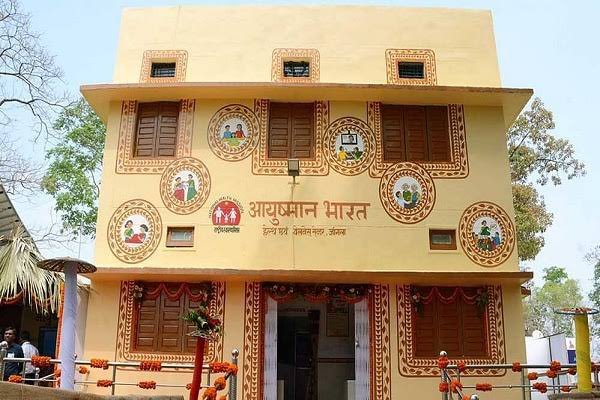The Union health and family welfare ministry are contemplating a significant expansion of diagnostic services at its health and wellness centres, now called Ayushman Arogya Mandir. This move is part of a broader strategy to reduce the patient load on hospitals and enhance the availability of primary healthcare services. The primary goal is to provide efficient diagnostic facilities at the grassroots level, ensuring that patients receive prompt and accurate assessments, leading to timely referrals if necessary.
The Ayushman Bharat initiative consists of two crucial components: health and wellness centres (HWCs) and Pradhan Mantri Jan Arogya Yojana (PM-JAY). In November of the previous year, the health and wellness centres were rebranded as Arogya Mandir. These centres aim to offer comprehensive primary healthcare (CPHC) by transforming existing sub-centres and primary health centres into hubs for various health services.
One of the key motivations behind improving diagnostic services at Arogya Mandirs is to alleviate the burden on hospitals caused by patients seeking diagnostic tests. Often, patients visit hospitals specifically for diagnostic services, leading to increased waiting times and overcrowding. By strengthening diagnostic capabilities at Arogya Mandirs, the government aims to streamline the process, allowing patients to receive initial assessments closer to their homes. This not only reduces the pressure on hospitals but also facilitates better guidance for further treatment or specialized consultations.
To support the expansion of diagnostic services, the health ministry is actively encouraging local manufacturers to contribute their devices. The emphasis on local manufacturing aligns with the government’s “Make in India” campaign and addresses logistical challenges, particularly in rural areas with poor connectivity. This approach promotes self-sufficiency and contributes to the growth of the indigenous medical technology industry.
The rebranded Arogya Mandirs aspire to deliver a more extensive range of services, including maternal and child health care, treatment for non-communicable diseases, palliative and rehabilitative care, oral, eye, and ENT care, mental health services, and emergency and trauma care. Additionally, these centres offer free essential drugs and diagnostic services. The overarching goal is to transform these centres into comprehensive healthcare facilities that address a spectrum of health needs.
Moreover, the government is pushing for accreditation of these health and wellness centres under the National Quality Assurance Standards (NQAS) by 2026. This accreditation process ensures that the facilities meet specific quality benchmarks, enhancing the overall quality of healthcare services provided. By adhering to NQAS standards, Arogya Mandirs aim to become reliable healthcare providers, delivering services in a standardized and effective manner.
The expansion of diagnostic services at Arogya Mandirs reflects a holistic approach to healthcare, encompassing not only treatment but also preventive and wellness-focused measures. The government plans to encourage and expand activities beyond medical treatment, including yoga, zumba, meditation, nutrition and lifestyle counseling, and community events like cyclothons and marathons. By integrating these elements, Arogya Mandirs aspire to be community health hubs that foster overall well-being.
As per the health ministry’s data, Ayushman Arogya Mandirs have seen substantial footfall, with over 2 billion visits recorded until the end of September last year. These centres play a crucial role in screening various diseases, such as hypertension, diabetes, oral cancer, breast cancer, and cervical cancer. The data showcases the significant impact these centres have had on preventive healthcare and early disease detection.
The government’s initiative to enhance diagnostic services at Ayushman Arogya Mandirs is a commendable step towards strengthening primary healthcare in the country. By integrating diagnostic capabilities at the grassroots level, the government aims to create a robust healthcare ecosystem that addresses the diverse healthcare needs of the population. This initiative not only aligns with the goals of the Ayushman Bharat programme but also contributes to the broader vision of building a healthier and more self-reliant India.














